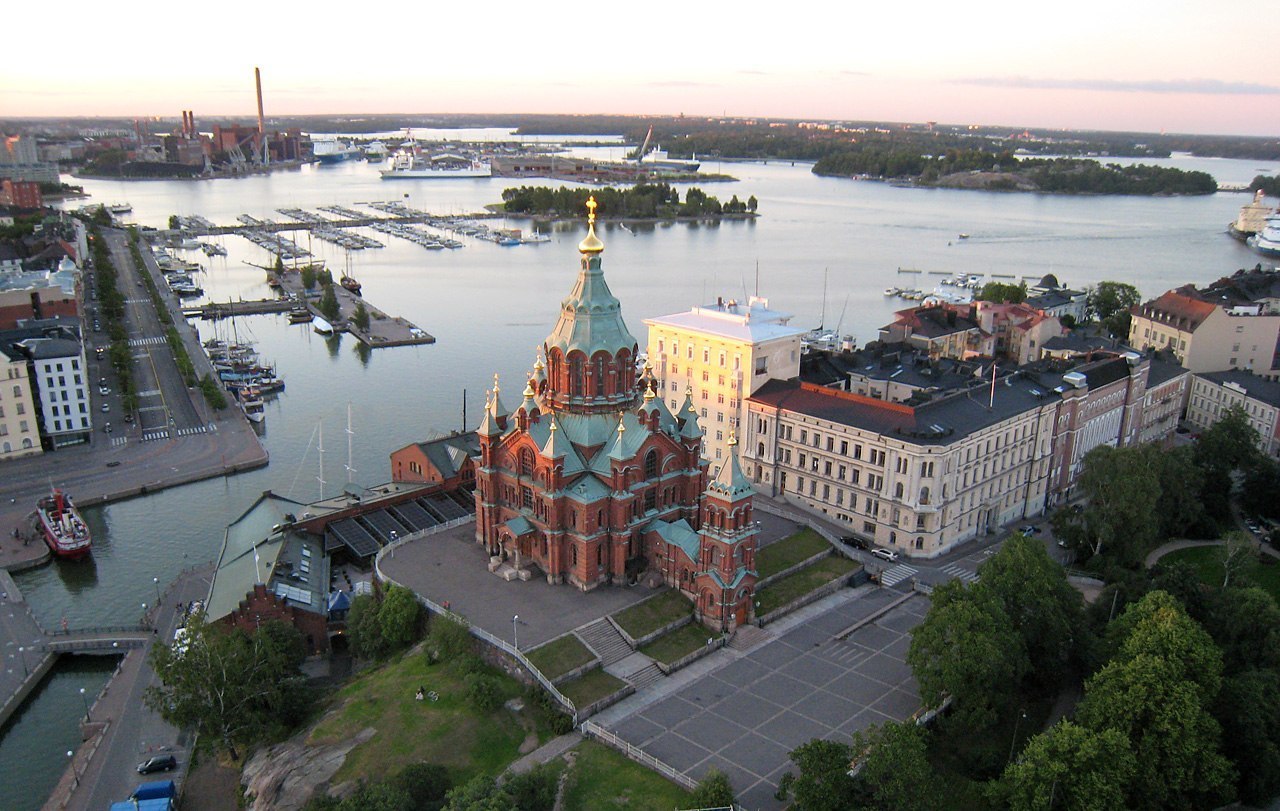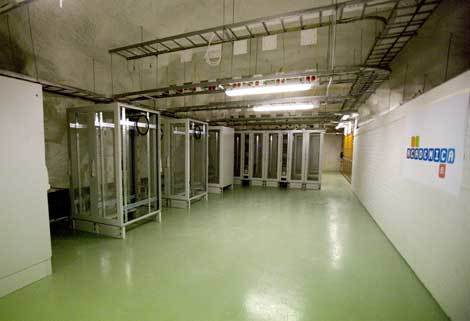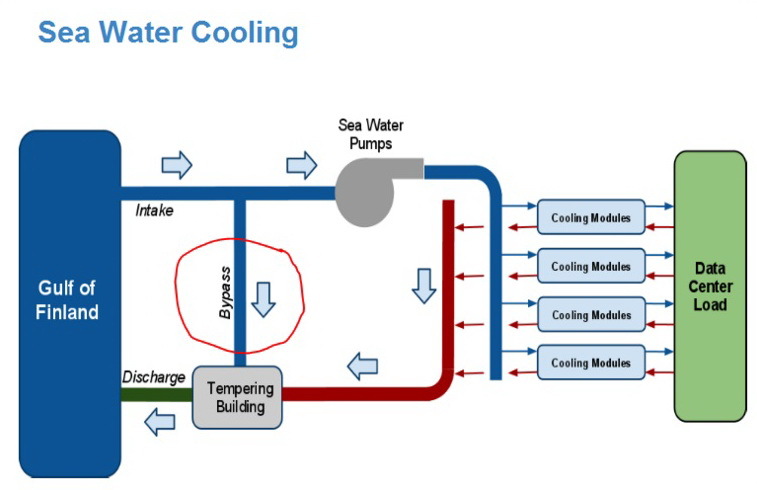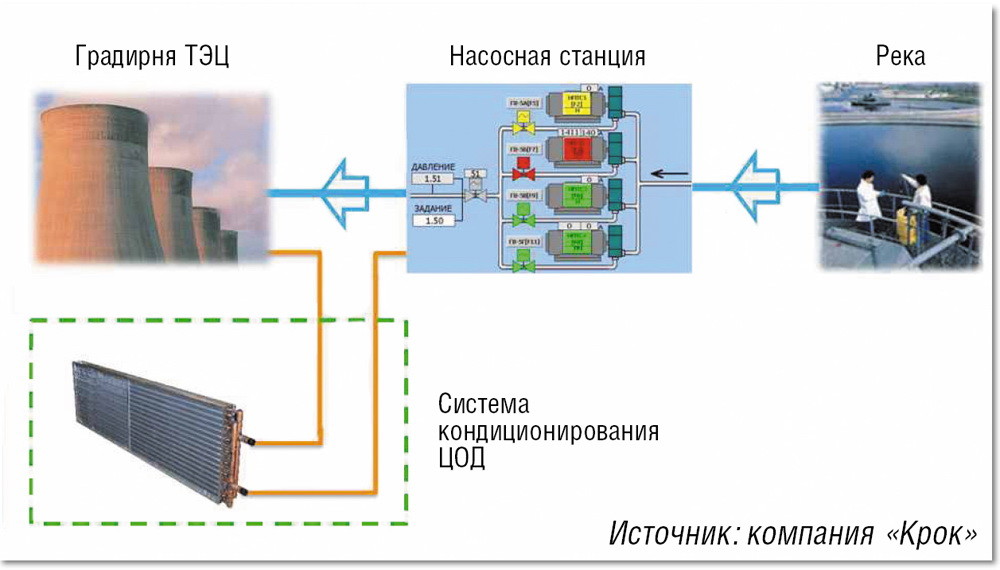About servers and seawater
In the center of Helsinki, under the Assumption Cathedral, there is a data center cooled by sea water.

During construction:
')

Servers are cooled by water from the Gulf of Finland. In summer, warm water is discharged back into the sea, in winter, through heat pumps, energy is supplied to the heating of Helsinki apartment buildings.
The Uspenski data center was created as a pilot project for the development of cooperation between IT companies Academica and Helsingin Energia, the organization responsible for the energy supply of Helsinki. The object is small: 270 square meters of space and 350 kW of power with the ability to expand up to 800 kW.
About the data center starts from 3:26:
When the joint work of heating networks and computer technicians was debugged, in the former industrial area of Helsinki, Suvilahti built a second data center in a similar fashion. The capacity here is already 1.35 MW, the efficiency of heat transfer from servers to the city’s heat network is approximately 70% .
PUE is not reported, but apparently it is noticeably lower than normal values , since in winter the data center is not only a consumer, but also a source of energy.
Actually, the technology of cooling servers with water from a natural reservoir is not unique, and there are already quite a lot of similar projects in the world. This is how data centers work in Sweden , in Norway , and the Google data center also functions on a former paper mill in the Finnish Hamina, 180 km from St. Petersburg and also on the shores of the Gulf of Finland. The scheme of the latter:

Cases of the use of this scheme in Russia are unknown to me. Some time ago there was talk of building a similar data center in Irkutsk.

(picture from here )
Conversations are still ongoing, but about the cooling with water from the river is no longer audible.
It may be difficult to get permission in Russia. I was even told in the blog of the Lakhta Center, which is under construction in St. Petersburg, that they do not plan to use the natural cold of the Gulf of Finland, since this contradicts the current legislation.
Although the Scandinavians, known for their careful attitude to nature, this technology does not seem to bother.

During construction:
')

Servers are cooled by water from the Gulf of Finland. In summer, warm water is discharged back into the sea, in winter, through heat pumps, energy is supplied to the heating of Helsinki apartment buildings.
The Uspenski data center was created as a pilot project for the development of cooperation between IT companies Academica and Helsingin Energia, the organization responsible for the energy supply of Helsinki. The object is small: 270 square meters of space and 350 kW of power with the ability to expand up to 800 kW.
About the data center starts from 3:26:
When the joint work of heating networks and computer technicians was debugged, in the former industrial area of Helsinki, Suvilahti built a second data center in a similar fashion. The capacity here is already 1.35 MW, the efficiency of heat transfer from servers to the city’s heat network is approximately 70% .
PUE is not reported, but apparently it is noticeably lower than normal values , since in winter the data center is not only a consumer, but also a source of energy.
Actually, the technology of cooling servers with water from a natural reservoir is not unique, and there are already quite a lot of similar projects in the world. This is how data centers work in Sweden , in Norway , and the Google data center also functions on a former paper mill in the Finnish Hamina, 180 km from St. Petersburg and also on the shores of the Gulf of Finland. The scheme of the latter:

Cases of the use of this scheme in Russia are unknown to me. Some time ago there was talk of building a similar data center in Irkutsk.

(picture from here )
Conversations are still ongoing, but about the cooling with water from the river is no longer audible.
It may be difficult to get permission in Russia. I was even told in the blog of the Lakhta Center, which is under construction in St. Petersburg, that they do not plan to use the natural cold of the Gulf of Finland, since this contradicts the current legislation.
Although the Scandinavians, known for their careful attitude to nature, this technology does not seem to bother.
Source: https://habr.com/ru/post/367875/
All Articles